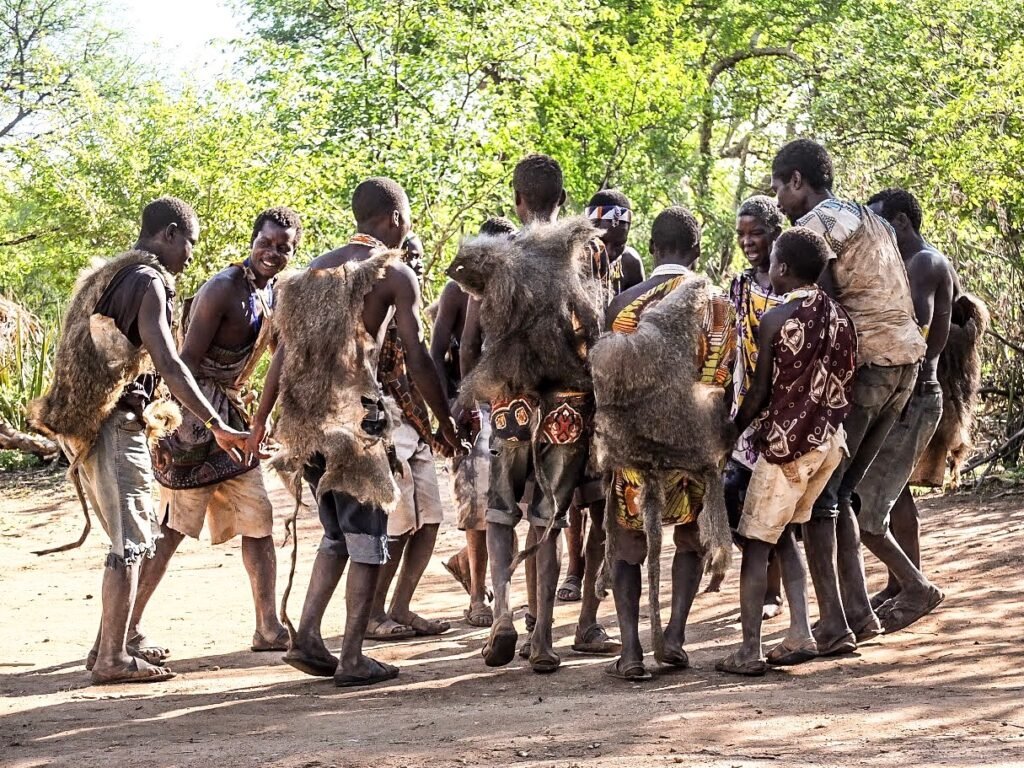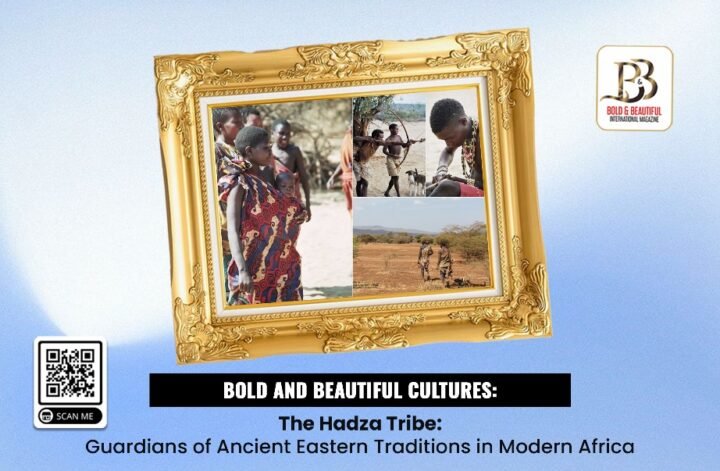Nestled around Lake Eyasi in Tanzania’s Arusha region, the Hadza tribe stands as one of the last true hunter-gatherer societies in Africa. With a lineage that stretches back thousands of years, the Hadza are believed to have inhabited the area since the late Stone Age, maintaining a unique way of life that offers a living glimpse into humanity’s earliest cultural roots. Just 50 km from Olduvai Gorge, known as the “Cradle of Mankind,” their homeland holds clues to our collective past.

A Unique Social Structure and Lifestyle
Unlike most modern societies, the Hadza operate without centralized leadership. Decisions are made collectively, reflecting their egalitarian values. Men focus on hunting and honey gathering, often partnering with the honeyguide bird, while women specialize in foraging for berries, tubers, greens, and eggs. Opportunism rather than rigid roles defines their survival strategy, a testament to their adaptability.

Language and Oral History
The Hadza speak Hadzane, a linguistic isolate found nowhere else in Africa, highlighting their distinct cultural identity. Their oral tradition divides history into four epochs, each marked by a different type of human existence—from the hairy, tool-less Geranebee to the present-day hamayishonebee. This rich storytelling tradition not only preserves their past but also provides a framework for understanding the world around them.

Challenges of Modernization
Despite their resilience, the Hadza face growing pressures from modernization and land encroachment. Of the estimated 1,200 to 1,300 Hadza people, only around 400 continue to live a traditional lifestyle. Encroaching development threatens their ancestral lands, placing their rich cultural heritage at risk.





